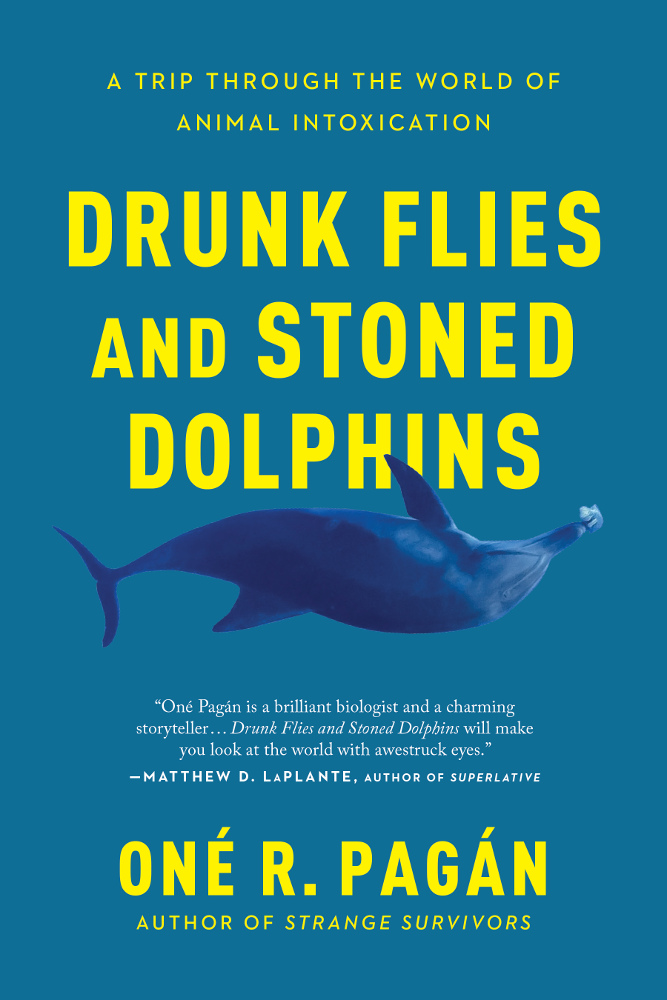
Looking for a good read? Here is a recommendation. I have an unusual approach to reviewing books. I review books I feel merit a review. Each review is an opportunity to recommend a book. If I do not think a book is worth reading, I find another book to review. You do not have to agree with everything every author has written (I do not), but the fiction I review is entertaining (and often thought-provoking) and the non-fiction contain ideas worth reading.
Book Review
Examining Animal Intoxication
Reviewed by Mark Lardas
December 26, 2021
“Drunk Flies and Stoned Dolphins: A Trip through the World of Animal Intoxication,” by Oné R. Pagán, BenBella Books, 2021, 320 pages, $17.95 (paperback), $12.99 e-boo k
Humans get drunk and stoned on drugs. That is how we know they are human. Animals know better, right?
“Drunk Flies and Stoned Dolphins: A Trip through the World of Animal Intoxication,” by Oné R. Pagán, explodes that belief. Not only do animals use drugs and alcohol, many animals seek them out.
The book takes readers on a wild trip through nature. In six chapters Pagán shows how chemistry, zoology, botany work, and where they all come together.
Pagán starts at the beginning, with an introduction to chemistry and the pharmacology that results from it. He discusses the poisons plants and animals produce, and why. (Life is very economical. It does not waste energy producing unneeded substances.) He also explains the difference between a poison and a medicine (or intoxicant) is often the dose. Human have been taking advantage of this for millennia. As Pagán shows – so have animals.
He also shows how everything fits together. Human (and animal) affinity for and tolerance of alcohol allows both to maximize nutritive intake. Fruits at their ripest begin to produce alcohol, when they have the greatest food value. Substances like caffeine, nicotine and alkaloids serve to discourage predators from eating the plants containing them.
These substances also discourage predators from eating animals ingesting them. Some animals which do not create them feed upon these substances to discourage other creatures (including diseases and fungi) from feeding on them.
Pagán also shows these behaviors are universal. Everything from the simple insects (the title’s fruit flies) to complex animals (the stoned dolphins) participate. The reasons, as Pagán shows, are multiple and complex. This book offers a lot of food for thought. Just the chapter on plant chemistry offers dozens of plot ideas for would-be science fiction authors.
This book is often hilarious. Pagán tells his story with humor. He also uses language accessible to those who made it through “Rocks for Jocks” and similar remedial science classes with a gentleman’s “C.” He does it in an entertaining manner that keeps you reading. He shows his work, too. The book is littered with footnotes and endnotes which amuse as they reveal his sources and offer opportunities for further inquiry.
Many science books are dry and uninviting. “Drunk Flies and Stoned Dolphins” is the opposite. It is informative, entertaining and witty. Even if you hated science as a school subject, odds are you will love this book.
Mark Lardas, an engineer, freelance writer, historian, and model-maker, lives in League City. His website is marklardas.com .